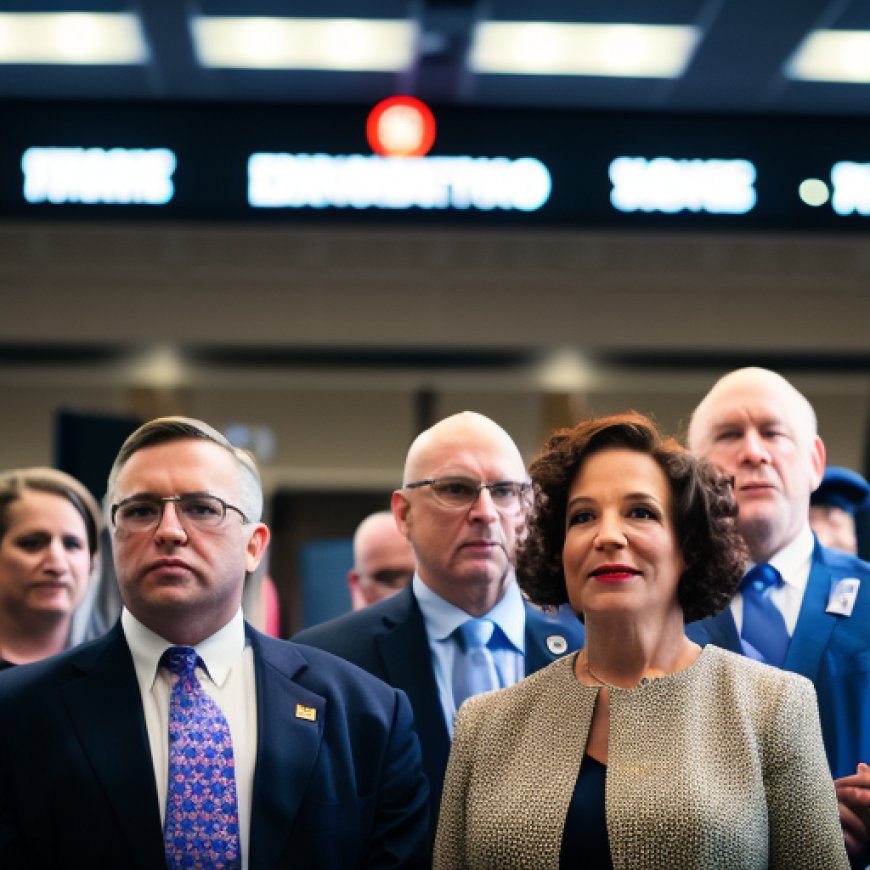Errington attends second Circular Economy Conference | Indiana House Democratic Caucus


INDIANAPOLIS –
On Tuesday, Sept. 10, State Representative Sue Errington (D-Muncie) attended Circular Indiana’s Second Circular Economy Conference. Previously known as the Indiana Recycling Coalition, Circular Indiana aims to strengthen the circular economy through education and advocacy. This includes eliminating waste, creating jobs and strengthening Indiana’s supply chains.
The Circular Economy
The Circular Economy is comprised of the following four principals:
- Eliminate waste and pollution
- Keep valuable materials in-use
- Regenerate nature
- Develop equity throughout our materials system
Conference Theme
This year’s conference theme was “Advancing Prosperity in Indiana through Circular Economy Principles.”
Statement from Errington
Please attribute the following statement to Errington:
“This conference allows legislators, activists and sustainability professionals to network and share ideas on how to shift to a system that keeps materials in continuous use. By prolonging the life of and reusability of materials, we can functionally take waste out of the equation.
“At the conference, I learned that Indiana is home to more recycling companies than most states. However, we don’t recycle enough to provide the materials they need. As a result, they import from other states. If we improved our recycling rate, we would bolster this growing sector of our economy. Indiana’s recycling rate is 21%. This recycling rate falls below the national rate of 32%, as calculated by the U.S. Environmental Protection Agency, and the state’s goal of 50%.
“Recycling is crucial to the reduction of waste, and I encourage everyone to do so. However, we must take it a step further. If we want to combat the ill effects of pollution, climate change, and the depletion of natural resources, we must be aggressive in our efforts to create a more sustainable future. This is an issue that affects the health and well-being of everyone, so we must all do our part to advance a better, more environmentally conscious system.”
SDGs, Targets, and Indicators
-
SDG 12: Responsible Consumption and Production
- Target 12.2: By 2030, achieve the sustainable management and efficient use of natural resources
- Indicator: Recycling rate
-
SDG 8: Decent Work and Economic Growth
- Target 8.4: Improve progressively, through 2030, global resource efficiency in consumption and production and endeavor to decouple economic growth from environmental degradation
- Indicator: Number of recycling companies
-
SDG 13: Climate Action
- Target 13.3: Improve education, awareness-raising, and human and institutional capacity on climate change mitigation, adaptation, impact reduction, and early warning
- Indicator: Recycling rate
The article addresses or connects to the following SDGs:
- SDG 12: Responsible Consumption and Production
- SDG 8: Decent Work and Economic Growth
- SDG 13: Climate Action
Based on the article’s content, the specific targets under these SDGs that can be identified are:
- Target 12.2: By 2030, achieve the sustainable management and efficient use of natural resources
- Target 8.4: Improve progressively, through 2030, global resource efficiency in consumption and production and endeavor to decouple economic growth from environmental degradation
- Target 13.3: Improve education, awareness-raising, and human and institutional capacity on climate change mitigation, adaptation, impact reduction, and early warning
The article mentions the recycling rate as an indicator that can be used to measure progress towards the identified targets. It states that Indiana’s recycling rate is 21%, which falls below the national rate of 32% and the state’s goal of 50%. This indicates the need to improve the recycling rate to achieve the targets under SDGs 12, 8, and 13.
| SDGs | Targets | Indicators |
|---|---|---|
| SDG 12: Responsible Consumption and Production | Target 12.2: By 2030, achieve the sustainable management and efficient use of natural resources | Recycling rate |
| SDG 8: Decent Work and Economic Growth | Target 8.4: Improve progressively, through 2030, global resource efficiency in consumption and production and endeavor to decouple economic growth from environmental degradation | Number of recycling companies |
| SDG 13: Climate Action | Target 13.3: Improve education, awareness-raising, and human and institutional capacity on climate change mitigation, adaptation, impact reduction, and early warning | Recycling rate |
Source: indianahousedemocrats.org








